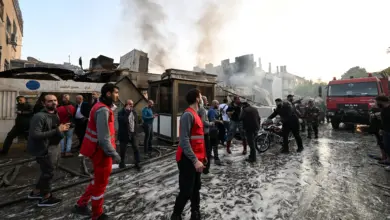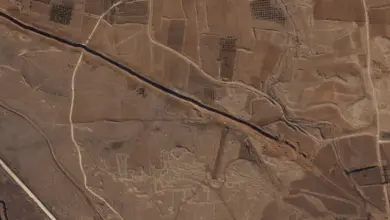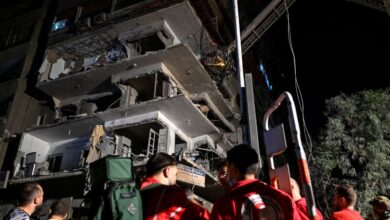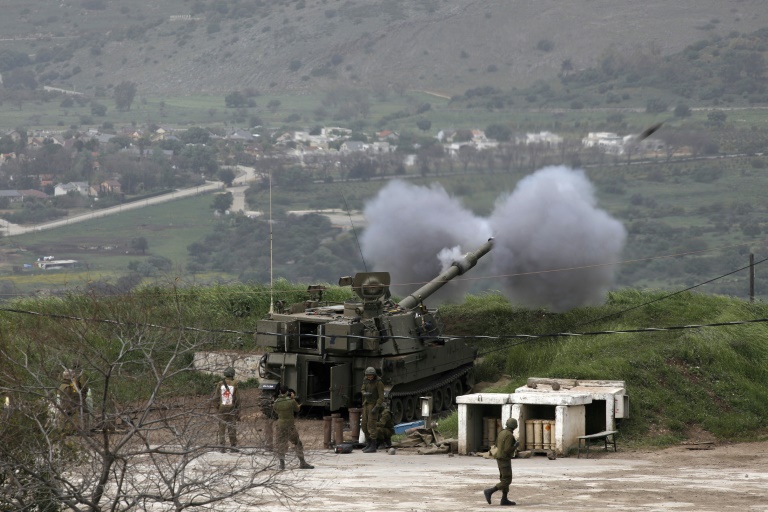Syrian security forces killed five people during a raid in the flashpoint central province of Homs on Monday as the opposition scrambled to organise against the regime, activists said.
In New York, French Foreign Minister Alain Juppe accused Syria of "crimes against humanity" and slammed the UN Security Council for failing to take a strong stand on the regime's bloody crackdown against dissent.
His remarks came as President Bashar al-Assad's forces pursued their repression of anti-regime protesters, killing five in the town of Houla and conducting arrests in other parts of the country, activists said.
"Five residents, including a woman, were shot dead on Monday by security forces, who have been conducting a sweep in Houla since Sunday," the Syrian Observatory for Human Rights said in a statement.
A 26-year-old man died of his wounds on Monday after being among a group of people whom security forces shot at the night before in the town of Irbin, near Damascus, the Britain-based activist group said earlier.
Security forces also opened fire on hundreds of demonstrators in two other towns in Homs, and carried out arrests in the second city Aleppo, eastern Deir Ezzor and the coastal cities of Latakia and Banias, it said.
According to UN estimates at least 2,600 people, most of them civilians, have been killed in the Damascus regime's crackdown on pro-democracy protests since the movement was launched six months ago on 15 March.
Assad and his Baath-dominated government have defended the repression, saying they are battling "armed terrorist gangs" and that they will proceed with reforms when Syria is rid of "chaos."
Since the anti-regime protests erupted in mid-March, several opposition groups have emerged united in their call for the ouster of Assad's autocratic regime but have been divided about how to go about achieving it.
The latest group, the Syrian Coalition of Secular and Democratic Forces (CSDF), is meeting in Paris where it issued a statement on Monday urging the international community to protect civilians against the repression.
The appeal – an implicit call for foreign intervention – conflicted with other pleas by opposition groups for an end to the bloodshed in Syria and the launch of political, economic and social reforms.
"We call on the international community to adopt a United Nations resolution to protect civilians," said a statement modelled on UN Security Council Resolution 1973 that authorised international action in Libya.
The CSDF brings together a dozen parties and political figures representing non-Islamist opposition groups from various Kurdish and Arab, Christian and Muslim communities.
Other opposition groups include the National Coordinating Committee for Democratic Change, a coalition of Arab and Kurdish nationalists, Marxists and independents such as writer Michel Kilo and economist Aref Dalila.
"We need to end the tyrannical security regime. We must overthrow the tyranny and the security (agents)," Hassan Abdel Azim, a senior member of the group said on Sunday after meetings near Damascus.
On Thursday, as Syria marked six months of anti-regime protests, opposition figures identified members of the "Syrian National Council," revealing the names of just 72 of the 140-strong body for security reasons.
Two more opposition groups were set up in Turkey at the end of August – the mainly Islamist "National Council" and the "National Council of Syrian Transition" headed by Burhan Ghaliyoun, a Paris-based academic.
Juppe said on Monday that "crimes against humanity are committed in Syria. The silence of the Security Council is unacceptable."
Russia – one of the five permanent members of the Security Council – has resisted attempts led by the United States and EU nations to issue a resolution condemning Syria, a key ally and buyer of Russian weapons.




